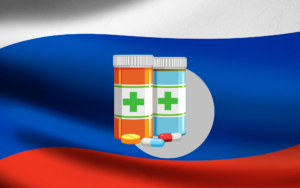
Since 1st July 2020, Russian Federal Law No. 425-FZ (Decree No. 1556) must be officially implemented by pharmaceutical manufacturers. Shortly before the deadline, the pharmaceutical industry tried to obtain a postponement. The new legislation, which will gradually be extended to include clothing, tobacco, and perfume, among others, is intended to prevent counterfeit medicines and black-market activities.
All drugs sold in Russia should initially be serialized from January 2020. However, due to the complex requirements, the deadline was postponed to 1st July 2020 at short notice to give companies more time to implement the requirements.
In the fight against product piracy, the Russian parliament also adopted harsher penalties for online trading with counterfeit and substandard medicines in April 2020. The penalties now range from $900 to $2,500 for individuals and from $27,000 to $81,000 for the same offences when committed by officials or companies.
Covid-19 also affects the pharmaceutical industry in Russia
The pharmaceutical industry in Russia seems to be struggling to implement the new regulations despite the extension of the deadline. One month before the deadline of 1st July 2020, eleven Russian organisations representing pharmaceutical manufacturers, distributors and pharmacies wrote a joint letter to Vladimir Putin asking him to postpone the deadline again, referring to the current pandemic. The research activities on the virus and the difficulties in the global supply chain caused by the pandemic would complicate the implementation of serialization rules and jeopardise the supply of medicines in the country, the joint letter said.
No transitional phase
According to media reports, there should have been a transitional phase in Russia, the idea was to postpone the punishment for disobeying the rules. The transitional period should have lasted three months. This transitional phase, however, has never been implemented.
In Russia, as in Europe, unlabelled medicines manufactured before 1st July can remain in circulation until their expiry date. In addition, under certain circumstances, medicines can be registered with the authorities so that they can be sold unserialized for a limited period (45 days). After October 2020, this possibility will no longer exist, and all unserialized medicines will be withdrawn from circulation.
Do you need a solution to comply with the Russian serialization requirements?